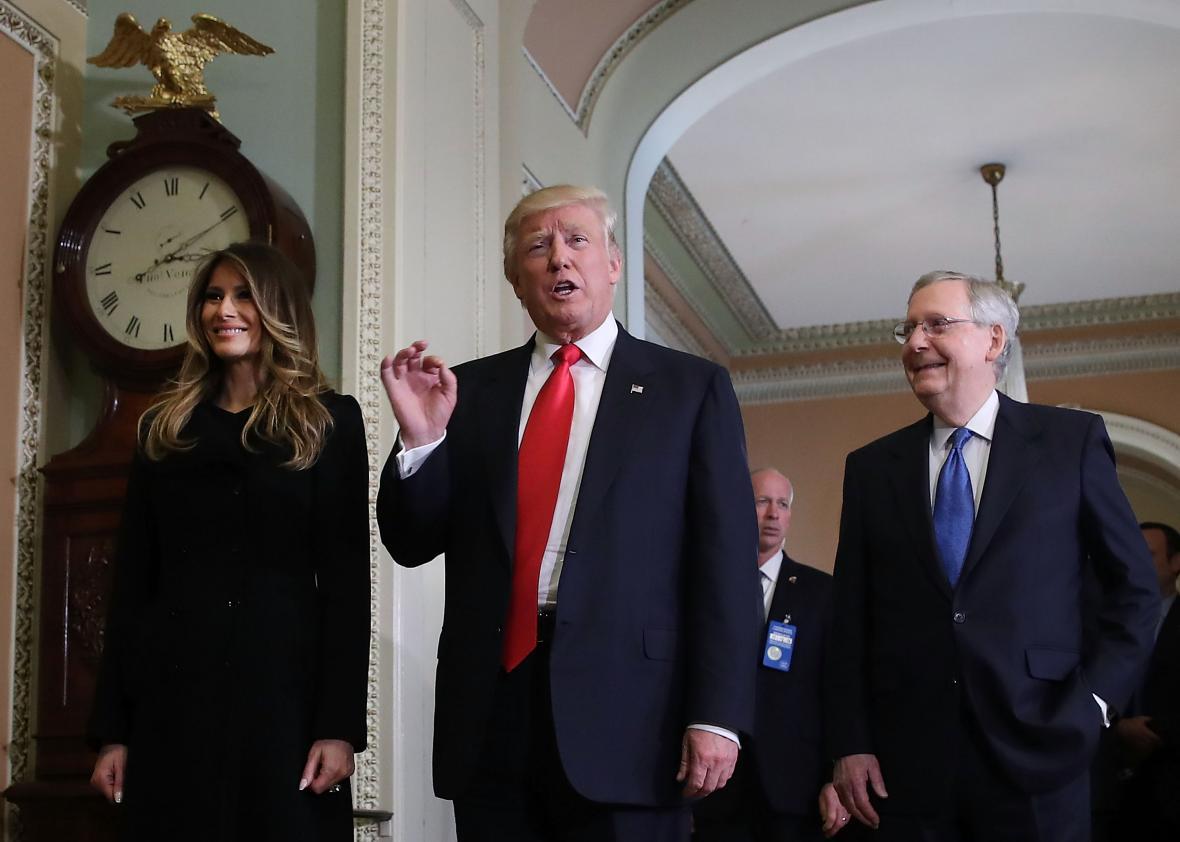More than 4.6 million and counting. That’s how many signatures are on an it’s-not-over-even-when-it’s-almost-certainly-over Change.org petition urging members of this year’s Electoral College to hand the presidency to Hillary Clinton instead of President-elect Donald Trump:
On December 19, the Electors of the Electoral College will cast their ballots. If they all vote the way their states voted, Donald Trump will win. However, in 14 of the states in Trump’s column, they can vote for Hillary Clinton without any legal penalty if they choose. We are calling on the 149 Electors in those states to ignore their states’ votes and cast their ballots for Secretary Clinton.
As has been well covered by now, this is indeed theoretically possible. There is nothing in the U.S. Constitution or federal law requiring electors to cast their Electoral College votes for the candidate who won their state. Instead, there is only a hodge podge of state laws—and even in most of those states, violating such laws would cost so-called faithless electors little more than a few hundred dollars in fines or get them a slap on the wrist. So, yeah, anything’s possible.
However. There is no good reason—none, zip, zero, zilch—to believe enough electors in states that went for Trump on Election Day will go rogue on Dec. 19 and cast their ballots for Clinton. Even if you set aside electoral tradition and historical precedent, two biggies, there remains a massive political problem that many people have either lost sight of or never noticed in the first place: the electors that would need to flip their allegiances from Trump to Clinton wouldn’t just be ignoring the will of the voters who selected them, they’d also be explicitly breaking with their own political party.
Here’s a short refresher on how Americans elect our presidents: In November, we go to the polls to cast ballots for our preferred candidates. Our votes, however, aren’t technically for the candidates themselves, but instead used to select a predetermined group of electors put forward by each party in each state. So, for example, when Trump won Iowa on Election Day, he didn’t actually win my state’s half-dozen electoral votes. Instead, the six people chosen as elector candidates ahead of time by state Republicans were selected to take part in next month’s Electoral College (and the six people chosen as elector candidates ahead of time by state Democrats were not).
We’re not talking about just any old Republicans, either. As I pointed out this summer, most electors are party stalwarts in their home states, meaning bucking the system will cost them friends and almost certainly their political careers. Already, those rare would-be electors who even suggested it was possible they might not vote for their party’s nominee have resigned rather than suffer the consequences of voting their consciences next month. (You can get a more complete picture of the type of people we’re talking about from this Politico Magazine piece, but for example’s sake, the sampling of people set to cast Electoral College ballots for Trump include a host of state GOP chairmen, Florida Attorney General Pam Bondi, and … Donald Trump Jr.) As the past year frustratingly proved, GOP opposition to Trump effectively ended as soon as the words GOP nominee started appearing before his name. If party loyalists didn’t break with Trump before he won the election, why would they do so now?
That’s not to say that there isn’t a good argument against the Electoral College simply rubber-stamping the Election Day results. Chief ethics lawyers from the George W. Bush and the Obama administrations have made the case that electors should reject Trump if he continues to refuse to make a good faith effort to prevent the myriad conflicts of interest the for-profit Trump Organization will create—and already is creating—for the U.S. government. But for that Trump-averting fantasy to come to fruition, Republican electors specifically selected by the Republican Party to cast electoral ballots for the Republican nominee will need to do something their fellow Republican voters refused to do on Election Day: hold Trump accountable for his actions. It’s not happening, guys.
